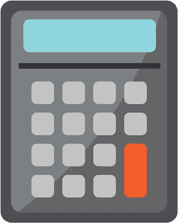It’s ideal to negotiate directly with the seller in person. You should always work to try to arrange that whenever possible. This allows you to establish rapport and more quickly talk through different scenarios to try to reach an agreement.
Most often, however, the broker will make sure you don’t get the chance to do that. This means you need to negotiate through the broker, and this is most often done over the phone or in writing, with the broker relaying documents and emails between you and the seller.
It’s aggravating, but a reality of life.
This is why your ability to effectively negotiate in writing is critical if you want to get deals done.
Long before the purchase contract is ever submitted, there’s lots of negotiation going on. If you just throw over a purchase contract (which may be fine for single family houses, but not so much for apartment buildings), you’re just wasting everybody’s time. Or you could just make up an offer price 25% below asking, but I’ve found that these kinds of “offers” are quickly dismissed by the seller and broker.
You have to be more intentional if you want to increase the chances to get your offers accepted.
I have found that if you can communicate HOW you arrived at your offer price, you have a much better chance at getting a positive response, which in our case would be a counter-offer, which starts the negotiation process.
You have to get good at communicating how you “underwrote” the deal to arrive at your offer price to both the broker and the seller. Sometimes you find yourself educating the seller and/or broker if their expectations are higher than what the property is worth. If they can understand your underwriting, then you have a better chance at getting agreement on your offer price.
In this article I talk about two ways to do this effectively.
Read the complete article on the Bigger Pockets.
